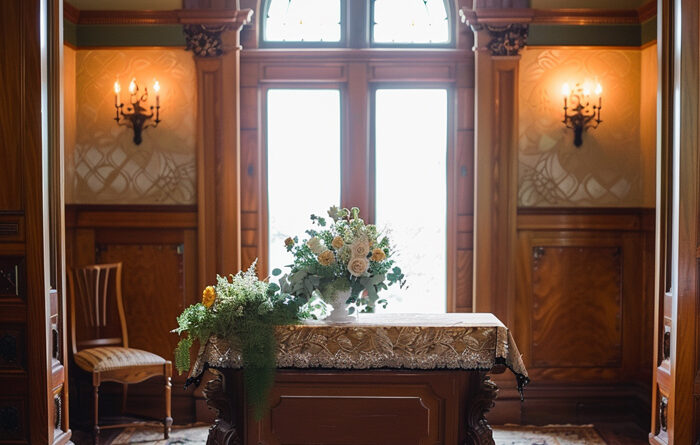
Introduction to Multicultural Funeral Planning in Houston
Funeral planning is an essential but challenging process that involves honoring the deceased while considering the cultural and religious customs important to families and friends. Houston, being one of the most culturally diverse cities in the United States, offers an array of services to accommodate the various traditions and rites involved in saying the final goodbye. Planning a multicultural funeral in Houston requires an understanding of the city’s resources and a respect for the intricate cultural practices that characterize each community’s mourning process.
Understanding Cultural Variances in Funeral Rites
The first step in organizing a multicultural funeral is to appreciate the diversity of funeral customs across different cultures. In Houston, where the population is a melting pot of ethnicities, there are funeral homes and directors experienced in handling ceremonies ranging from traditional Christian services to Hispanic velorios, African American homegoing celebrations, and Asian ancestral rites. An appreciation of each culture’s unique perspective on death and the beyond is critical for fostering an atmosphere of respect and honor for the departed and their family.
Knowledge of cultural customs can considerably influence funeral planning, from the type of service to the rituals performed. Some cultures require a swift burial following the passing, while others observe extended mourning periods with various stages. Familiarizing oneself with these practices will help families arrange a service that is culturally respectful and personalized for the loved one they are commemorating.
Collaborating with Culturally Competent Funeral Homes
Families can benefit significantly from engaging with funeral service providers that have experience in conducting multicultural funerals. Houston boasts funeral homes that specialize in services for specific communities or are capable of accommodating a multitude of traditions. Collaboration with such providers ensures that the family’s wishes are met with the highest standard of respect for cultural protocols.
Funeral directors in these establishments can guide families through the planning process, offering suggestions and modifications to standard funeral arrangements that honor cultural requirements. From selecting the right venue, casket, and decorations to arranging culturally specific rituals, directors serve as invaluable partners in the planning process.
Choosing Appropriate Venues and Ceremonials in Houston
When deciding where to host a multicultural funeral, consider venues that are flexible and open to incorporating various traditions. Houston offers a selection of chapels, community halls, and event spaces that can be adjusted to fit cultural needs. A venue that allows for the display of customary decorations, seating arrangements, or ritualistic processes is imperative for a funeral that respects the deceased’s heritage.
Ceremonials, too, play an essential role in multicultural funerals. Whether it involves traditional music, readings, dances, or the participation of religious or community leaders, the choice of ceremonials should reflect the cultural background of the deceased. Houston’s access to diverse religious officials and cultural performers ensures that families can find the appropriate ceremonial elements for their funeral service.
Adapting to Legal and Religious Requirements
Adhering to both secular laws and religious dictates is a crucial aspect of planning a multicultural funeral. Houston, with its comprehensive legal framework, offers clear guidelines on funeral practices, which include the handling of the deceased, burial protocols, and the operation of funeral businesses. Understanding these regulations helps in planning an event that is not only culturally appropriate but also complies with state requirements.
Moreover, religious requirements may dictate specific days for mourning, types of burial, and rites to be performed. Engaging with religious leaders and ensuring that all aspects of the funeral comply with these dictates are essential for a service that truly represents the deceased’s faith and cultural practices.
Navigating Financial Considerations and Support Services
Financial planning is an integral part of organizing a funeral and can be significantly more complex when involving varying cultural elements. Houston’s funeral services come in a range of prices, accommodating lavish ceremonies as well as modest gatherings. Families should consider their budget and the financial support available to them, such as community funds, religious organizations, or cultural associations that can offer assistance and resources.
In addition, grief support services that are sensitive to cultural practices can be tremendously beneficial for families during this difficult time. Many communities in Houston offer support groups and counseling services that respect cultural perspectives on death and mourning.
Conclusion
In summary, planning a multicultural funeral in Houston requires a profound respect for cultural diversity and an awareness of the resources available. By considering cultural traditions, collaborating with experienced funeral homes, selecting versatile venues, and comprehending legal and religious obligations, one can organize a reverent and meaningful service. Furthermore, with careful financial planning and the utilization of support services, families can navigate through this challenging time with dignity and grace. Houston stands as a testament to cultural respect and provides a supportive environment for those going through the mourning process, illustrating the city’s capacity to embrace and honor its diverse community even in death’s face.

What is the importance of cultural considerations in planning a funeral?
Cultural considerations are crucial in planning a funeral, as they ensure that the practices and rituals performed are reflective of the deceased’s beliefs, traditions, and values. Paying respect to these elements can provide comfort to the grieving family and community by honoring the cultural identity and heritage of the loved one who has passed away. It also fosters a sense of inclusion and unity among attendees from different cultural backgrounds.
How can one incorporate various cultural traditions into a funeral service?
Incorporating various cultural traditions into a funeral service can be done by consulting with family members to understand the essential elements of their cultural rituals and then combining these with the funeral arrangements. This might include specific readings, music, prayers, or attire relevant to the culture. It is also helpful to work with funeral service providers who are experienced in multicultural ceremonies to ensure all customs are respected and integrated appropriately.
What should someone consider when choosing a funeral director for a multicultural funeral?
When choosing a funeral director for a multicultural funeral, consider their experience in managing diverse funeral services and their understanding of various cultural traditions and requirements. Look for a funeral director who is respectful, open to incorporating different customs, and willing to work with the family to ensure the service honors the deceased’s cultural background. Additionally, consider the director’s language skills if multilingual communication is necessary for planning and conducting the service.




